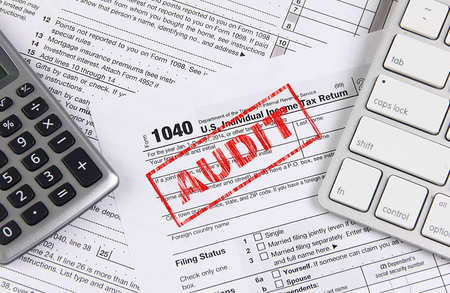
No one wants to go through an IRS audit. These days, an audit happens when the IRS thinks that the tax money they could recoup from an audit exceeds the cost of performing the audit itself, or if they believe there may be criminal activity involved. As long as you’re doing everything right, there’s no specific reason to worry about an audit. However, sometimes even if you think you’re doing everything right, you may accidentally raise some red flags. Following are seven things that could inadvertently trigger an IRS audit.
1. Unusual Business Expenses
As a business owner, you’re entitled to a number of tax deductions that ordinary taxpayers aren’t. You can deduct things like office supplies, business travel expenses and even certain meals. However, there are a host of other business expenses that are dubious when it comes to taking a deduction. For example, except under specific circumstances, you probably can’t deduct tickets to entertainment events, donations from which you personally benefit, commuting expenses or all those generous cash tips you gave to hotel housekeeping during the year. If you do have unusual business expenses that you’re pretty certain you should be able to deduct, be careful about keeping your receipts and be sure to run them by your CPA.
2. Sharp Decline in Income
If you’ve been in business for a number of years with steadily increasing income, you’ve set a pattern. But if one year you all of sudden report a sharp decline in income, this raises a red flag that could result in an audit. The reason is that the IRS has a general idea of what you should be making according to your profession and level of experience. Anything that falls far below the norm may raise some alarm bells. Now, there may be a good reason why you earned less; maybe you are transitioning into retirement or you had some health issues that prevented you from working as much as you did previously. But if everything else is the same, you should be ready to explain why you’re only reporting a fraction of your normal income.
3. Above Average Itemized Deductions
As your CPA has no doubt advised you, it’s often more advantageous to take itemized deductions than to take the standard deduction. Purportedly, the IRS knows the average amount of itemized deductions that someone in your tax bracket takes. If your itemized deductions are far above the average, someone in the Internal Revenue Service may want to take a closer look. As long as your itemized deductions are legitimate, you don’t have anything to worry about. Just be aware that this is something that could raise a red flag.
4. Unreported Income
Let’s say that you’re a business owner and you’re vigilant about filing accurate tax returns every year. One year, business is slow so you take on some side work for a little extra money, and you receive a 1099 or a W-2 in January. It’s so small that you don’t bother to tell your CPA about it and it doesn’t get reported on your business or personal tax returns. You need to know that even if you didn’t report it, the employer did send in a copy of the 1099 or W2 to the IRS. Things are not going to match up on the IRS’s end, and this is going to raise a red flag. Neglecting to report this income will raise your risk of an audit.
5. Being a High Earner
Unfortunately, the simple fact that you make more than $200,000 makes you a bigger target for a tax audit. According to statistics, those who earn over that amount are about four times more likely to be audited. You can’t do anything about that, but you can make sure that your tax returns and backup are in meticulous order. If you are audited, don’t give the IRS any reason to penalize you.
6. Not Reporting Cryptocurrency Earnings
Cryptocurrency may not be in “official” dollars and cents, but it counts the same in the eyes of the IRS. Cryptocurrency earnings are taxable in the eyes of the law, so be sure to keep excellent records and report your profits on your tax returns. Your CPA will likely have some advice as how to best track and record your cryptocurrency earnings.
7. You Made an Honest Error
There’s no harm in doing your own tax return, except when there is. The IRS doesn’t mind if anyone does their own taxes as long as they are accurate. But when you make one or more errors on your return—even if they are honest mistakes—that’s when the IRS sits up and takes notice. Even honest errors will get flagged for a closer look. If the IRS gets the impression there are more mistakes in your return, odds are high that you’ll be notified of an audit. It’s always a good idea to have a CPA do the final preparation of your taxes, even if you like to do a rough draft yourself. That way, you know that a professional is looking over all the numbers so that by the time it gets to the IRS, everything is as accurate as possible.
There are rumors that the IRS doesn’t do as many audits anymore because of lack of funding. That may or may not be true, but you can count on one thing; if the IRS gets wind of any of the red flags mentioned above, they’ll find the resources to audit the taxpayer if they feel it’s necessary. Always take your tax returns very seriously and be careful about tracking your personal and business expenses and income throughout the year. When you do this, filing your returns will be more straightforward for both you and your CPA and you can be confident that the information on your returns is correct to the best of your knowledge. At the end of the day, that’s all the IRS asks of you.
